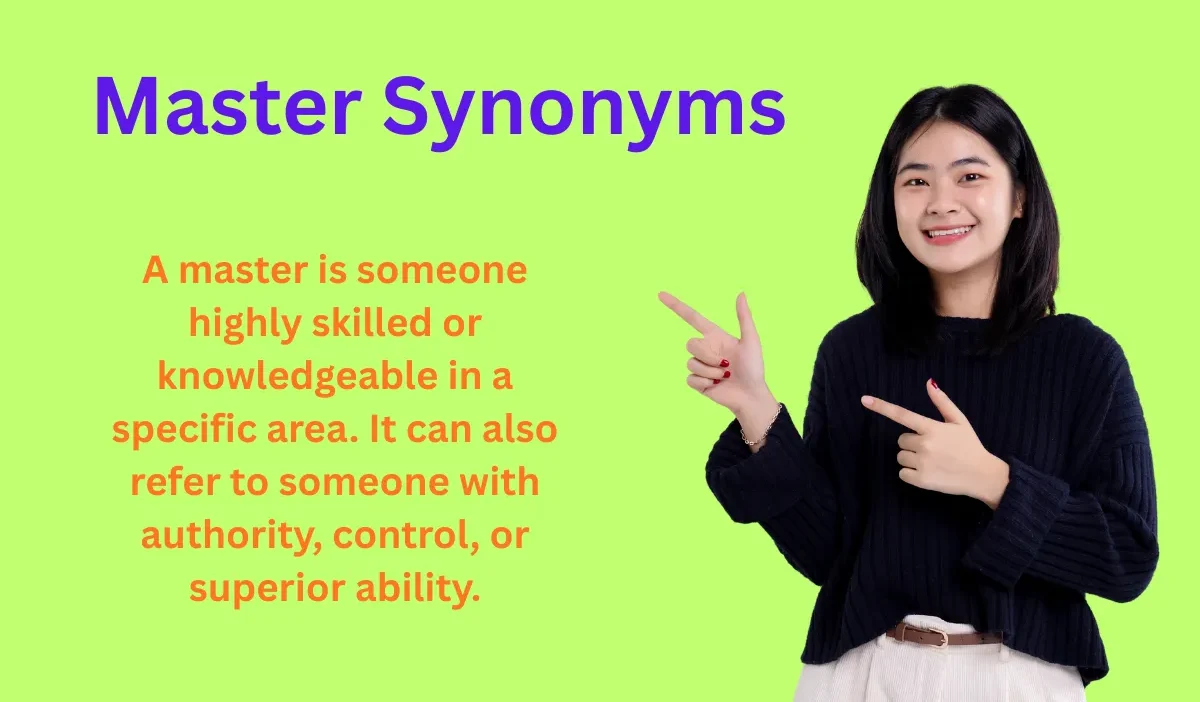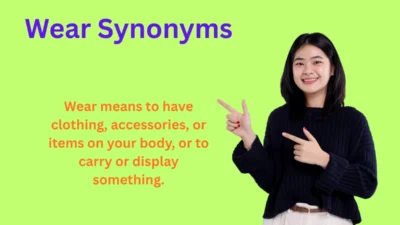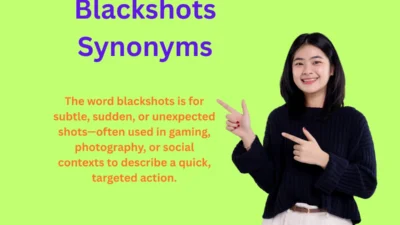Master synonyms, such as expert, mentor, authority, or maestro, describe someone who has exceptional skill, knowledge, or control over a particular field or activity. For example, people often say someone is a “master” of chess, cooking, or music, highlighting their expertise and proficiency.
Using the right synonym for master helps you communicate skill, authority, or dominance clearly — whether you’re writing professional content, storytelling, or motivational pieces.
In this guide, we’ll explore master alternatives, their meanings, and how to use them effectively. Each term adds a distinct nuance, from formal respect to casual admiration.
What Does Master Mean?
A master is someone highly skilled or knowledgeable in a specific area. It can also refer to someone with authority, control, or superior ability.
Being a master often implies:
- Exceptional skill or expertise in a craft, art, or profession
- Authority or control over a subject, team, or activity
- Recognition and respect from peers or society
- Ability to mentor or teach others
It’s not just about ability — “master” also conveys confidence, respect, and accomplishment.
Synonyms & Related Words for Master
1. Expert
Description: Someone with extensive knowledge or skill.
Example: “She’s an expert in digital marketing.”
Usage: Professional, formal; widely understood.
2. mentor
Description: A highly knowledgeable and respected person.
Example: “He is a yoga mentor who has trained thousands.”
Usage: Spiritual or professional; informal in casual contexts.
3. Authority
Description: A person recognized as an expert in a field.
Example: “She is the authority on environmental law.”
Usage: Formal; emphasizes credibility.
4. Maestro
Description: A distinguished master in music or arts.
Example: “The maestro conducted the orchestra flawlessly.”
Usage: Formal, artistic; conveys prestige.
5. Virtuoso
Description: A person with exceptional technical skill.
Example: “He is a virtuoso pianist admired worldwide.”
Usage: Formal, artistic; emphasizes performance excellence.
6. Ace
Description: A top performer or highly skilled individual.
Example: “She’s an ace programmer in the team.”
Usage: Informal, positive; often used in sports or casual contexts.
7. Prodigy
Description: A person with extraordinary talent at a young age.
Example: “The child prodigy amazed the judges.”
Usage: Formal or storytelling; emphasizes innate ability.
8. Champion
Description: A leading figure or winner in a field.
Example: “He’s a champion in martial arts.”
Usage: Sports, competitive, or metaphorical contexts.
9. Mentor
Description: Someone who teaches or guides others.
Example: “She became a mentor for new employees.”
Usage: Professional or educational; emphasizes guidance.
10. Wizard
Description: Expert with skill or magical connotation.
Example: “He’s a coding wizard who solves problems quickly.”
Usage: Informal, playful; great for tech or creativity contexts.
11. Specialist
Description: Focused expert in a particular field.
Example: “She is a specialist in pediatric surgery.”
Usage: Professional; formal.
12. Connoisseur
Description: Expert in matters of taste or art.
Example: “He’s a connoisseur of fine wines.”
Usage: Formal, refined; emphasizes appreciation and judgment.
13. Commander
Description: A leader with authority and control.
Example: “He acted as commander of the research team.”
Usage: Military, leadership, or metaphorical contexts.
14. Maestro of [X]
Description: Highly skilled expert in a specific area.
Example: “She is a maestro of modern dance.”
Usage: Formal, artistic; emphasizes mastery of a craft.
15. Adept
Description: Highly skilled or proficient.
Example: “He’s adept at solving complex puzzles.”
Usage: Formal, neutral; emphasizes capability.
16. Captain
Description: Leader of a team or group.
Example: “She’s the captain of the debate team.”
Usage: Leadership context; can be formal or informal.
17. Scholar
Description: Expert in academic or intellectual fields.
Example: “He’s a scholar of ancient history.”
Usage: Formal, academic; emphasizes learning.
18. Artificer
Description: A skilled craftsman or creator.
Example: “The artificer crafted exquisite jewelry.”
Usage: Literary, formal; emphasizes creativity and skill.
19. Genius
Description: Extraordinary intelligence or talent.
Example: “She’s a genius in mathematics.”
Usage: Formal or informal; highlights natural brilliance.
20. Trailblazer
Description: Someone who leads or innovates.
Example: “He’s a trailblazer in renewable energy research.”
Usage: Inspirational, modern; emphasizes innovation.
21. Overseer
Description: A person with authority or control.
Example: “The overseer managed all operations efficiently.”
Usage: Formal; emphasizes responsibility and oversight.
22. Teacher
Description: Someone who instructs or imparts knowledge.
Example: “She is a teacher of creative writing.”
Usage: Neutral, professional; practical.
23. Captain of Industry
Description: Leader in business or trade.
Example: “He became a captain of industry through innovation.”
Usage: Formal, figurative; emphasizes leadership.
24. Virtuosa (Female) / Virtuoso (Male)
Description: Highly skilled female/male performer.
Example: “The virtuosa amazed the audience with her violin.”
Usage: Artistic, formal; highlights performance skill.
25. Mastermind
Description: Exceptional strategist or planner.
Example: “She is the mastermind behind the project’s success.”
Usage: Informal or storytelling; emphasizes intelligence and planning.
26. Expert Practitioner
Description: Someone skilled in practice, not just theory.
Example: “He’s an expert practitioner of traditional medicine.”
Usage: Formal; professional and credible.
27. Luminary
Description: A leading or inspiring figure.
Example: “She’s a luminary in the field of architecture.”
Usage: Formal, inspirational; emphasizes influence.
28. Wizard of [X]
Description: Skilled or magical connotation for expertise.
Example: “He’s a wizard of graphic design.”
Usage: Informal, creative, playful and appealing.
29. Authority Figure
Description: Recognized leader or expert.
Example: “He’s an authority figure in cybersecurity.”
Usage: Formal; emphasizes credibility and respect.
30. Maestro of Mastery
Description: Someone at the pinnacle of skill.
Example: “She’s a maestro of mastery in calligraphy.”
Usage: Poetic, dramatic; emphasizes supreme expertise.
How to Choose the Right Synonym
The synonym you choose for “master” should match your tone, audience, and context:
- Professional or formal: Expert, authority, specialist, scholar, adept
- Playful or informal: Wizard, ace, genius, wizard of [X]
- Artistic or creative: Maestro, virtuoso, connoisseur, artificer
- Leadership or influence: Captain, overseer, luminary, trailblazer
- Strategic or intellectual: Mastermind, mentor, mastermind of [X]
For storytelling, use “maestro” or “virtuoso” to evoke admiration, while in professional writing, “expert” or “authority” fits best.
Conclusion
Exploring master synonyms helps you express skill, authority, and expertise with precision. Words like expert, mentor, maestro, virtuoso, and mastermind each emphasize slightly different aspects — from formal knowledge and leadership to playful brilliance and creativity.
Using the right synonym allows you to describe talent, influence, or mastery vividly, whether for professional writing, storytelling, or motivational content. These alternatives make your language more engaging, precise, and compelling, highlighting excellence in every context.





